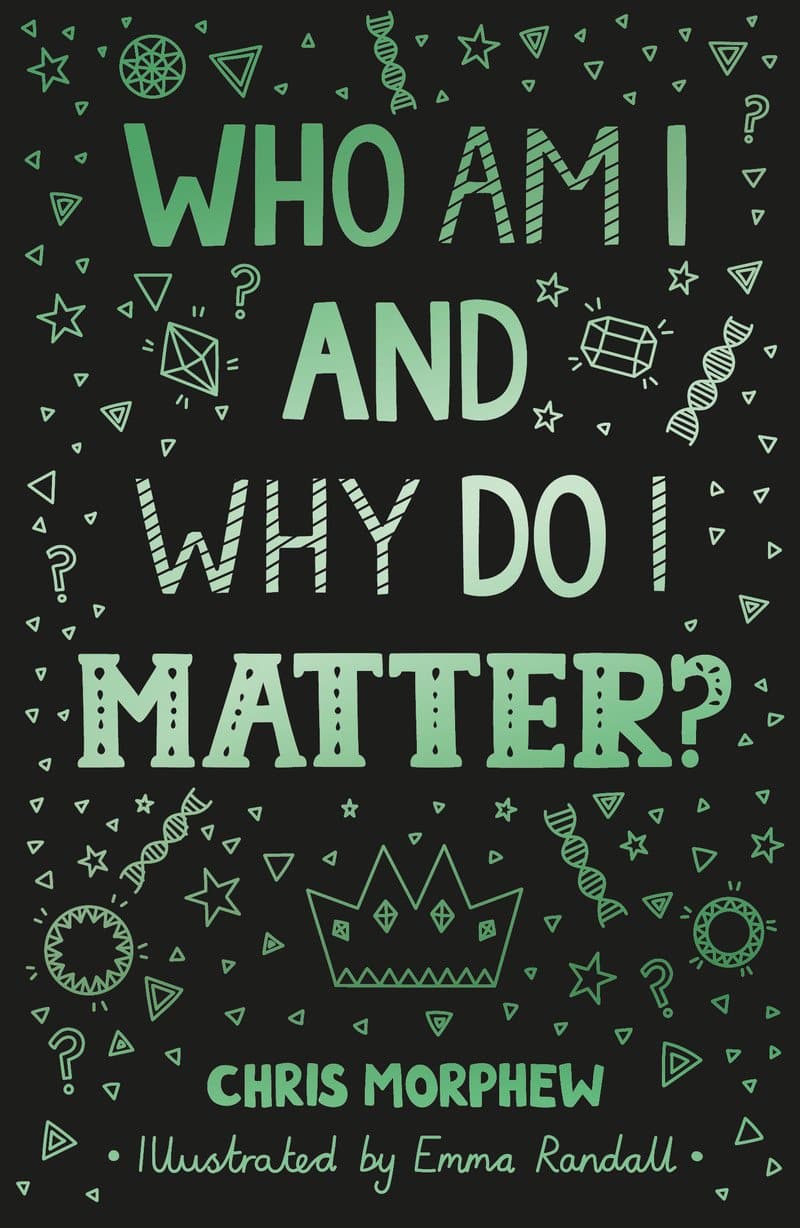If you spend time with nine-to-thirteen-year-olds, you know they are asking big questions. Sure, they may not actually verbalise them—but there is a lot they are thinking about: Am I loved? Do I matter? Who can I trust? Does the world make sense?
Although, let’s be honest, these are questions we all ask. That’s why Chris Morphew’s Who Am I and Why Do I Matter? is so helpful.
Lots of Flawed Answers
Morphew dives right in, acknowledging his readers have valid queries and important things to ponder. While aimed at tweens, this could also be appealing to older teenagers, and helpful for parents and youth group leaders. I certainly appreciated it.

Who Am I and Why Do I Matter?
Chris Morphew
Sooner or later, kids ask big questions about themselves and their faith.
Chris Morphew has been answering big questions from kids for over a decade. In this warm, empathetic book, he shows children how to embrace and enjoy their identity as those loved by God and made in his image. He also gives lots of practical advice on how to remember what God says about who they really are.
Lively stories and illustrations make this book easy for 9-13s to engage with. Readers will be helped to replace fear and anxiety with faith and confidence as they find their self-worth in what God says.
He begins by considering the usual ways people try to answer these questions:
- Perhaps I matter because of what I have, or how I look, or what I do;
- Maybe I just need to be true to myself and do what makes me happy; or
- I should just listen to what others say about me.
Without being remotely condescending, he then clearly exposes the faults in each of these myths. The reader is led to wonder where they might go for answers:
[W]hat we really need is something bigger than ourselves, bigger than people, to lead us and guide us. Which brings us to God. (38)
Without being remotely condescending, [Morphew] clearly exposes the faults in each of these myths.
One Ultimate Answer
From here, Morphew winsomely explains the gospel message—God loves us personally:
God doesn’t just say people matter.
He says you matter.
God doesn’t just love people.
He loves you.
God doesn’t just invite people into his incredible, glorious purpose and plan for the world.
He invites you.” (49)
Whether we think we’re pretty good, or we despair at the ways we mess up, Jesus came to die for us: “Without Jesus, everyone is lost. But with Jesus, anyone can be found.” (58)
Morphew explicitly names the challenges young people face today and provides the clear solution in Jesus:
The world is full of voices telling you who you are, and who you should be.
Voices telling you that you don’t measure up.
Voices telling you that you need to prove yourself.
Voices telling you that if you just buy this new thing, or have this new experience, or … maybe then it will all make sense, and you can finally be that happy, fulfilled self that the world keeps promising you.
And it’s exhausting, right?
And, more than that, it’s a lie.
But the incredible news is that Jesus offers you a better way. (65-66)
Without Jesus, everyone is lost. But with Jesus, anyone can be found. (58)
The Difference This Answer Makes
The remainder of the book considers what it looks like practically to believe in Jesus, to trust him, and to let him shape you. Morphew discusses forming good habits, reading God’s word, and resting. As he does so, Morphew manages to balance honesty with humour, and challenging words with comforting truths. Rather than talking down to his audience, he openly addresses questions, and is frank about some of the challenges of following Jesus. He has a clear desire for his reader to know Jesus—to grasp they have purpose and value because they are loved and precious to him. Readers will sense he actually cares.
Morphew is an Australian author and chaplain, and clearly understands tweens. Perhaps an extra drawcard for younger readers is Morphew authored some of the Zac Power books. It is probably pitched more at the upper end of the nine-to-thirteen-year-old age group, because of the vocabulary and comments about social media. Or maybe it’s just that I hold out hope that under 12s aren’t on social media platforms. Who Am I and Why Do I Matter? is one of four in a “Big Questions” series. I am now keen to read the others.















